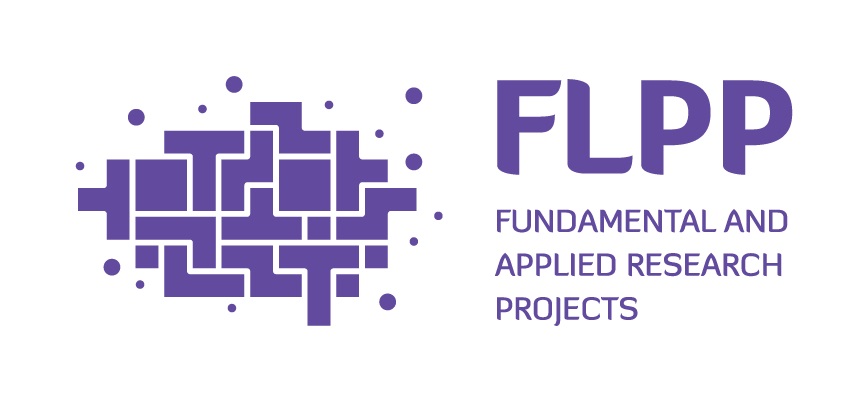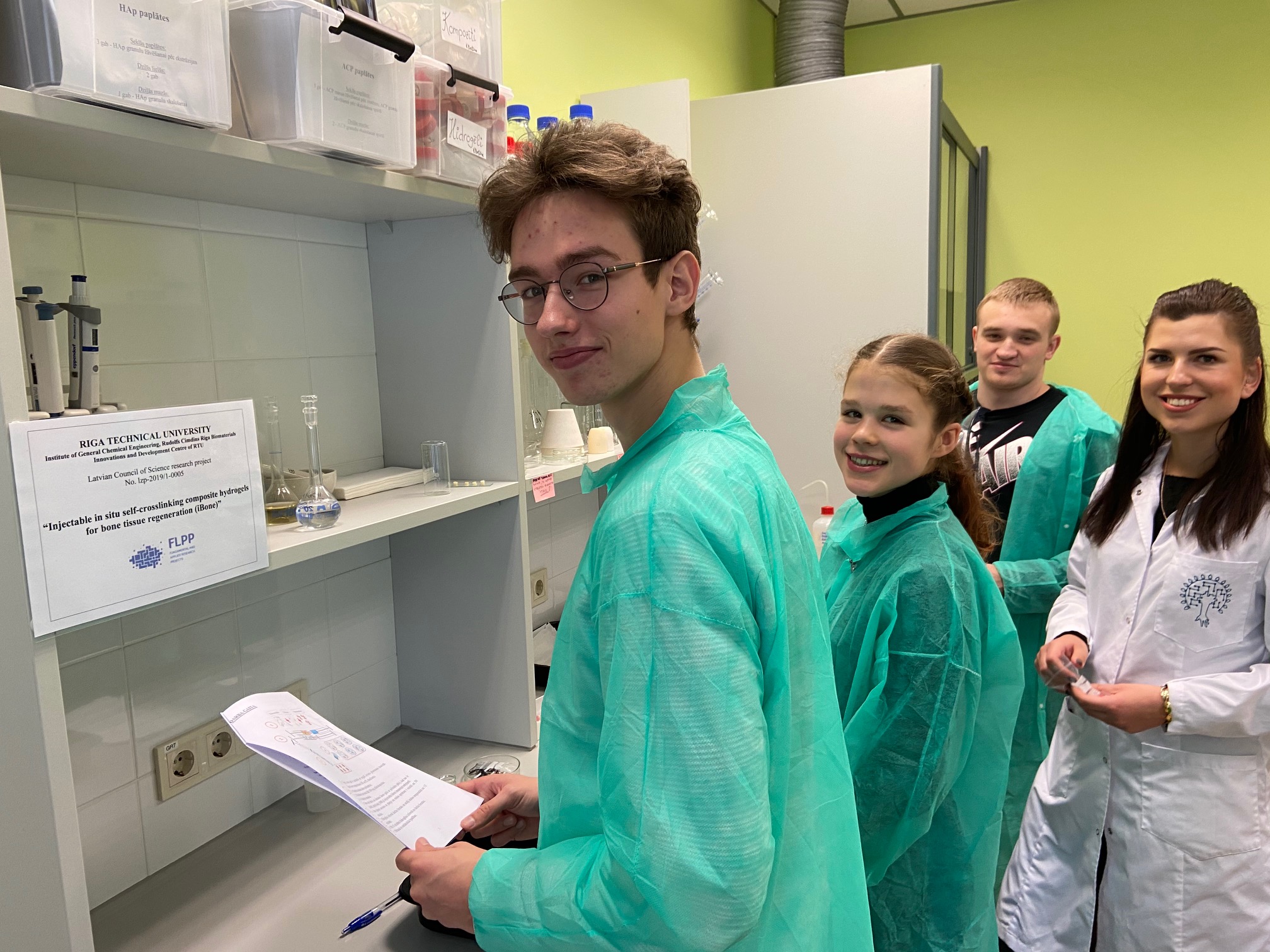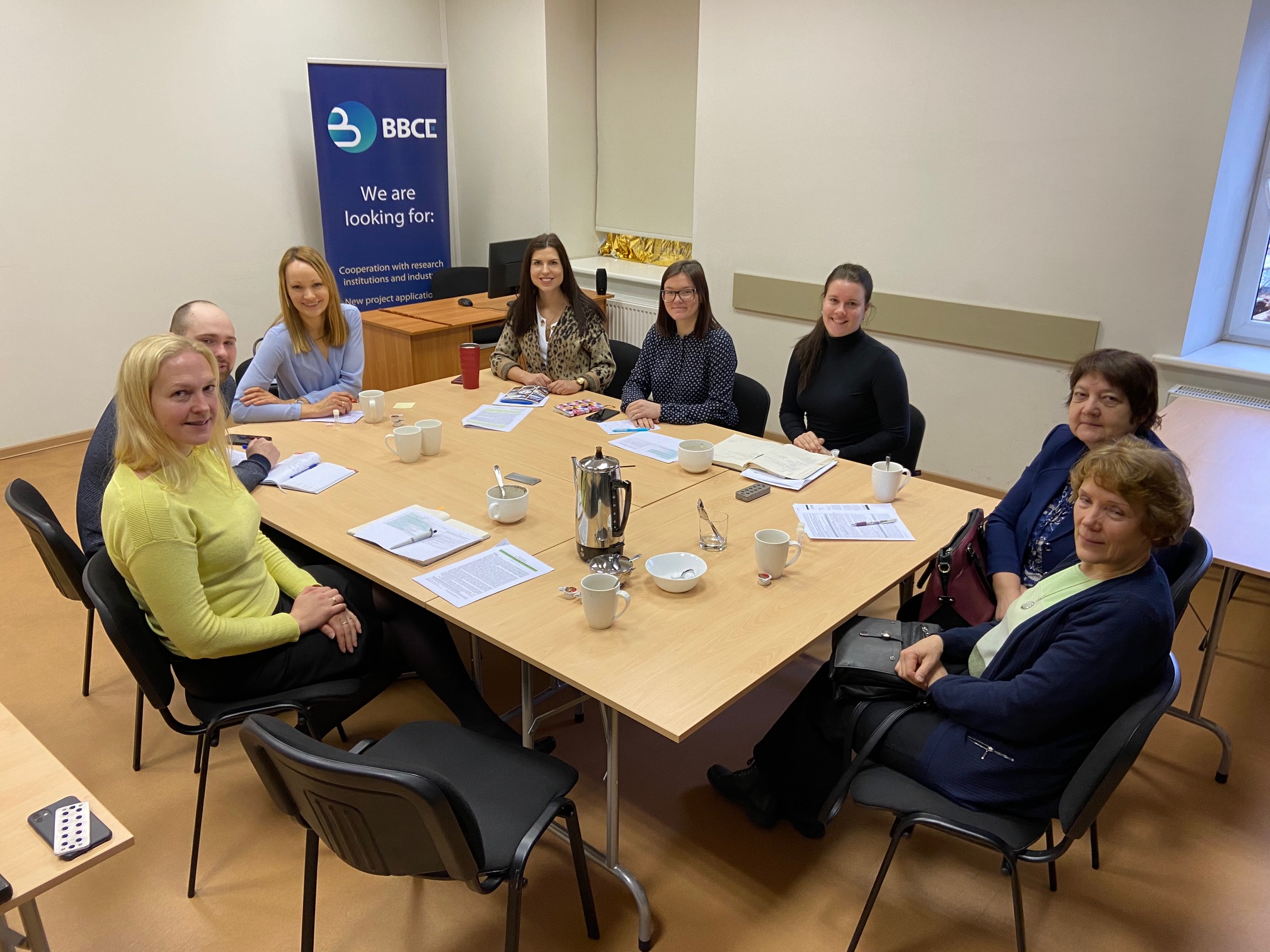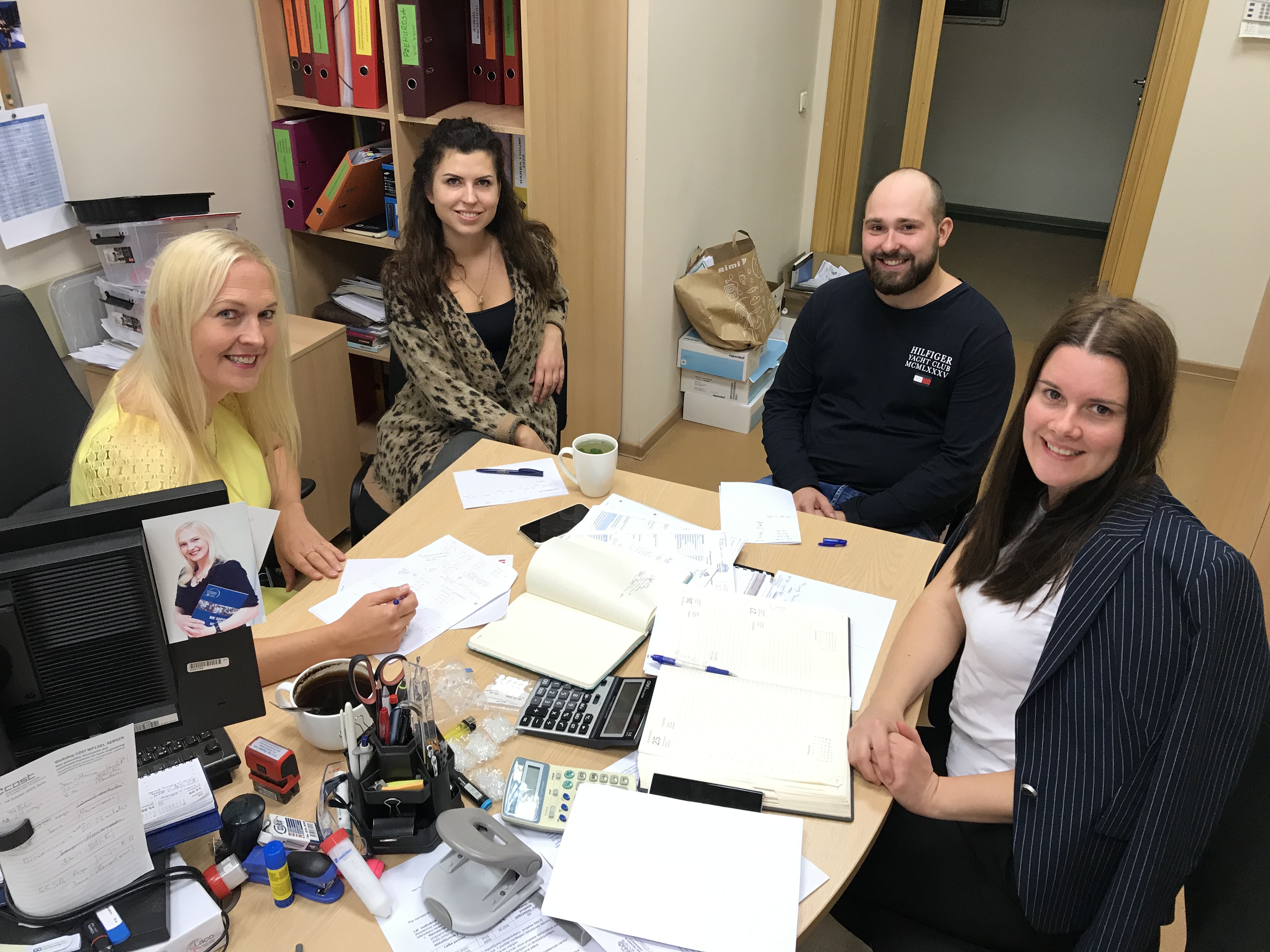
Fundamental and Applied Research Project No. lzp-2020/1-0072 «Injectable bioactive biocomposites for osteoporotic bone tissue regeneration (inBioBone)» (2021-2023).
Coordinator: Assoc. Prof., Dr. sc. ing. Kristine Salma-Ancane, RTU Rudolfs Cimdins Riga Biomaterials Innovations and Development Centre, Institute of General Chemical Engineering, Faculty of Materials Science and Applied Chemistry (contact information: ).
Bone regeneration is still a substantial medical challenge in today’s clinical routine. One of the main reasons is a global silent epidemic - osteoporosis. The overall objective of the proposed «InBioBone» project is to develop novel injectable bioactive biocomposites based on strontium substituted or strontium ranelate loaded nanosized hydroxyapatite, ɛ-poly(L-lysine) and hyaluronic acid to fill the osteoporotic bone defects, simultaneously providing antibacterial treatment and healing of osteoporotic bone fractures. The novel injectable biocomposites will be fabricated using in situ chemical crosslinking synthesis of hydrogel matrix and simultaneously precipitation of hydroxyapatite into this matrix. The physicochemical properties, in vitro antibacterial activity, cytotoxicity, osteoinductive properties will be investigated. Results will be summarized in high impact Open Access publications and presented at international conferences. The implementation of the «InBioBone» will contribute to the development of Smart Specialization Areas such as «Biomedicine, medical technologies», «Bio-pharmacy and biotechnologies» and promote the overall development of Latvian economy and biomaterials R&D for healthcare sector. Within «InBioBone» novel biocomposites will be developed (starting from TRL2 and ending up to TRL4) which are potentially transferable from laboratory to the biomedical product industry.
Fundamental and Applied Research Project No. lzp-2020/1-0054 «Development of antibacterial autologous fibrin matrices in maxillofacial surgery (MATRI-X)» (2021-2023).
Coordinator: Assist. Prof., Dr. sc. ing. Arita Dubnika, RTU Rudolfs Cimdins Riga Biomaterials Innovations and Development Centre, Institute of General Chemical Engineering, Faculty of Materials Science and Applied Chemistry (contact information: ).
Project partner: MD., Dr. med. Ilze Salma, Riga Stradins Universty, Faculty of Dentistry, Department of Oral and Maxillofacial Surgery
The oral maxillofacial bone is a site of predilection for tumors, inflammation, trauma, and congenital disease that are usually treated by surgical operations, and surgical site infections represent second-most common hospital-acquired infections. Therefore, the overall goal of the proposed MATRI-X project is to develop controllable clindamycin and autologous growth factor delivery systems on the basis of marine polysaccharides and autologous platelet rich fibrin (PRF) matrice, simultaneously ensuring prophylactic antibiotic treatment and promoted tissue regeneration. The novel clindamycin and growth factor sustained delivery system will be designed on PRF and self-assembling fucoidan and chitosan microgels/particles (starting from TRL2 and ending up to TRL4). Physicochemical properties and antibacterial activity against isolated bacteria from clinical specimens will be investigated.The research results have a potential for transfer from laboratory to the market as high added value biomedical products. Thus, they can give a beneficial impact on the Latvian national economy as well as public health sector and promote a development of sustainable modern healthcare system by improvement of the quality of life of patients who suffer from tissue defects and disorders.
Coordinator: Prof., Dr. sc. ing. Dagnija Loca, RTU Rudolfs Cimdins Riga Biomaterials Innovations and Development Centre, Institute of General Chemical Engineering, Faculty of Materials Science and Applied Chemistry (contact information: ).
Project partner: Assoc. Prof., Dr. biol. Vizma Nikolajeva, University of Latvia, Faculty of Biology, Department of Microbiology and Biotechnology.
Musculoskeletal system diseases (osteoarthritis, osteoporosis etc.) and disorders are the second largest contributor to disability worldwide. The overall goal of iBone project is to develop novel injectable in situ self-crosslinking hydrogel for bone tissue regeneration, based on nanosized calcium deficient hydroxyapatite, ɛ-poly(L-lysine) and hyaluronic acid, simultaneously ensuring antibacterial effect and promoted bone regeneration. The novel hydrogels will be fabricated using calcium phosphate in situ synthesis in biopolymers solution. The physicochemical properties, in vitro antimicrobial activity, cytotoxicity and osteoinductive properties will be investigated. Results will be summarized in high impact Open Access publications and presented at international conferences. The research proposal matches with the Priority Directions in Science in Latvia such as Technologies, Materials and Systems Engineering for Increased Added Value Products and Processes and Public Health. Within iBone project novel injectable hydrogels will be developed (starting from TRL2 and ending up to TRL4) with a potential for transfer from laboratory to the market as high added value biomedical products or new technologies. The research results can give a beneficial impact on the Latvian national economy and public health sector and promote a development of sustainable modern healthcare system by improvement of the quality of life of patients who suffer from bone defects and disorders.
 |
 |
 |
| «Shadow days» 12.02.2020. | «iBone» project consortium kick-off meeting 18.02.2020. | Internal project meeting (RTU) 21.09.2020. |
Coordinator: Prof., Dr. sc. ing. Janis Locs, RTU Rudolfs Cimdins Riga Biomaterials Innovations and Development Centre, Institute of General Chemical Engineering, Faculty of Materials Science and Applied Chemistry (contact information: )
Despite all the performed biomaterial related research for the last decades, more effective materials for regeneration of damaged bone tissue caused by aging, diseases, trauma and pathologies are still needed. Aim of the project is to develop synthetic bone regenerating material with excellent properties that are comparable with «gold standard», i.e., natural bone. Material we are working with is biomimetic amorphous calcium phosphate. Amorphous calcium phosphate is considered to be the first inorganic phase, which form new bone tissue. Both amorphous calcium phosphate and natural bone mineral is mostly made of calcium and phosphorus elements. Nevertheless, natural bone comprises small amounts of other elements, e.g., magnesium, strontium, zinc, sodium, potassium and fluorine. Within framework of the project amorphous calcium phosphate containing these elements will be obtained, thus approaching natural bone in terms of composition, properties and performance.